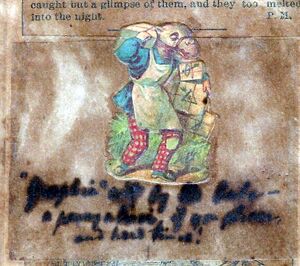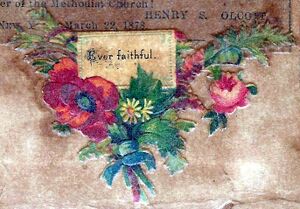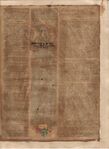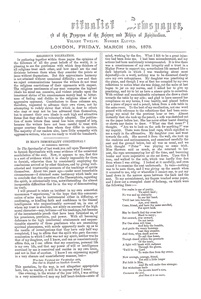< Materialization of a Ghost (continued from page 7-10) >
...

Col. Olcott on "The Ghost"
...

Ever faithful
Religious Toleration
In gathering together within these pages the opinions of the followers of all the great beliefs of the world, it is pleasing to see the gentleness with which deep thinkers of all religions treat each other, and how small are the real divisions between them when they consider the points at issue without dogmatism. But this approximate harmony is not attained without occasional difficulty; now and then we reject communications because the writers do not treat the religious convictions of their opponents with respect. The religious sentiments of any man comprise the highest ideals his mind can conceive, and violent attacks upon the innermost shrine of his consciousness merely lead to bitterness of feeling and dislike to the religious ideas of his aggressive opponent. Contributors to these columns are, therefore, requested to advance their own views, not by attempting to rudely shiver that which is dear to others who may or may not be less advanced than themselves, but to present their own ideals in such high and attractive forms that they shall be voluntarily adopted. The publication of more letters than usual has been stopped of late, because the writers have not been careful to treat with proper courtesy those from whom they differ in opinion. The majority of our readers also, have little sympathy with aggressive writers, who are too ready to wield the tomahawk.
Is Man's Immortality Conditional?
In The Spiritualist of last week you call upon Theosophists to furnish Spiritualists with some evidence of the occasional annihilation of the soul. Now, it appears to me, that this is a sort of evidence which it is clearly impossible for them to furnish, otherwise than by consistently employing the conclusions arrived at by other thinkers, and by giving well-attested and trustworthy accounts of the teachings of spirits themselves. About two years ago—under most remarkable circumstances—I obtained some testimony which leads me to conclude that this assertion of the Theosophists, regarding the spirit, is substantially true, notwithstanding the almost insuperable difficulties that lie in the way of demonstrating its truth.
I will proceed to relate an incident in my own somewhat uncommon “experiences,” in the hope that this communication of mine may be instrumental either in diffusing, or confirming, or kindling faith and confidence in the blessed intelligences who unquestionably surround us, in one of whom my trust is absolute, not solely on account of the high moral character—nay, holiness—of his teachings, but because of the incontestable proofs that have been furnished us, of his prescience, prevision, and power. With all becoming deference to the high intellectual attainments and unquestionable sincerity of those gentlemen who are examining spiritual phenomena, with minds apparently made up as to the results of investigations that they have only half way completed, I beg to affirm that the spirit who gave the communication to which I refer was not my spirit, neither was he that of my daughter, and I know, and can as conscientiously affirm this, as I can affirm that my conscious, personal life is my own life, and that any power of will or intelligence exercised by me is conceived and resides in my own brain, and not in that of another. I know I am expressing myself in a very obscure and unsatisfactory manner, but—
Was kein Verstand der Verstandige sieht,
Das ubet in Einfalt em kindlich Gemuth.
This quotation, by the way, is not altogether appropriate here, but, no matter, it will do to express what I mean.
One evening, in the winter of the year 1876,1 was sitting in a very miserable—I may say half heart-broken—state of mind, working by the fire. What I felt to be a great injustice had been done me. I had been misunderstood, and my actions had been maliciously misrepresented. It is true there was a consciousness of my own integrity and a trust in a Higher Power to support me, nevertheless life seemed like a dark labyrinth in which I was wandering about most dejectedly—in a word, nothing was to be discerned clearly <... continues on page 7-12 >
Editor's notes
- ↑ image by unknown author. colored picture
- ↑ Col. Olcott on "The Ghost" by Olcott, H. S., Telegram, The, Tuesday, March 26, 1878
- ↑ Ever faithful by unknown author. colored picture
- ↑ Religious Toleration by unknown author, London Spiritualist, No. 290, March 15, 1878, p. 121
- ↑ Is Man's Immortality Conditional? by Showers, Frederica, London Spiritualist, No. 290, March 15, 1878, pp. 121-2. "Chameleon africanus"
Sources
-
London Spiritualist, No. 290, March 15, 1878, p. 121


